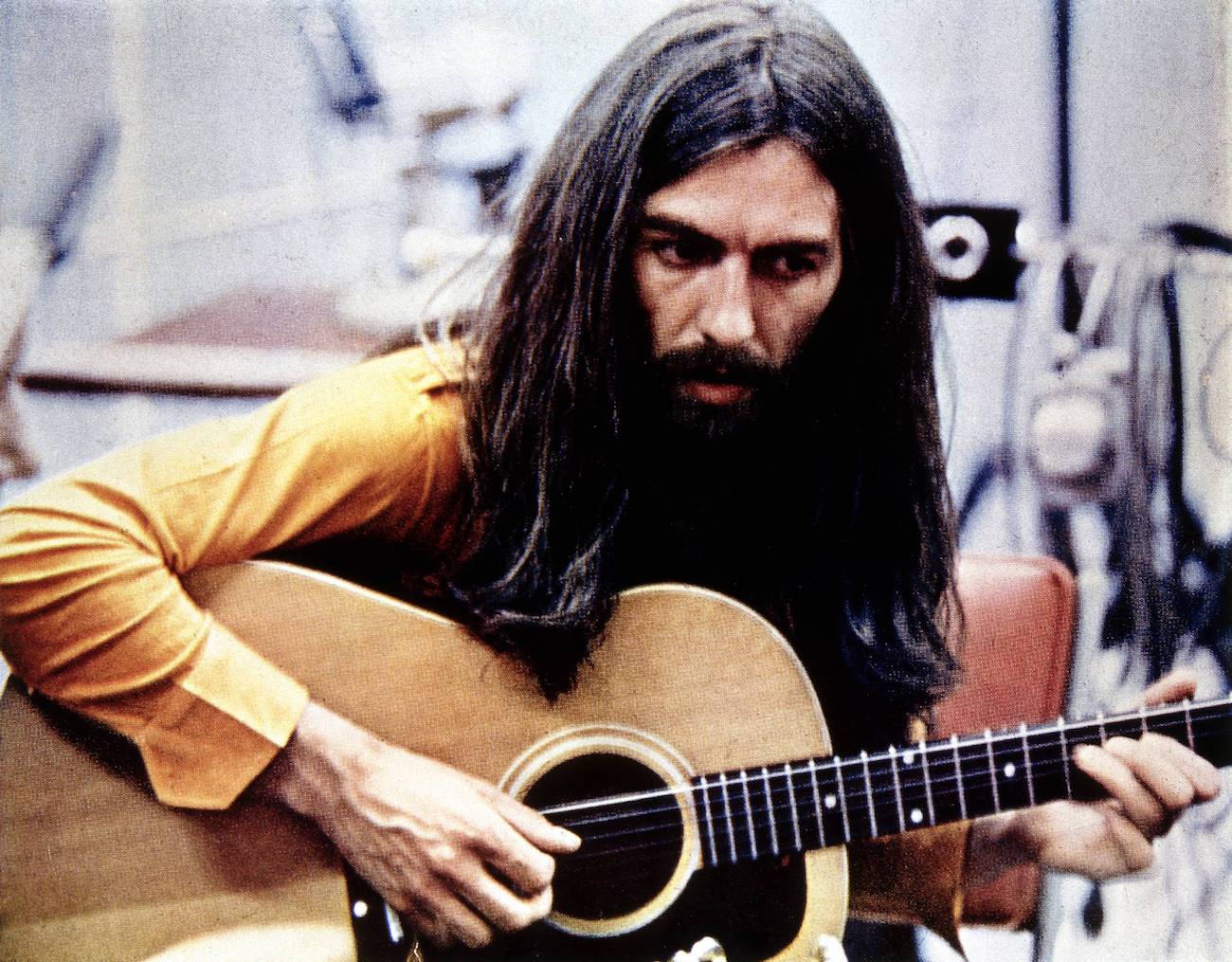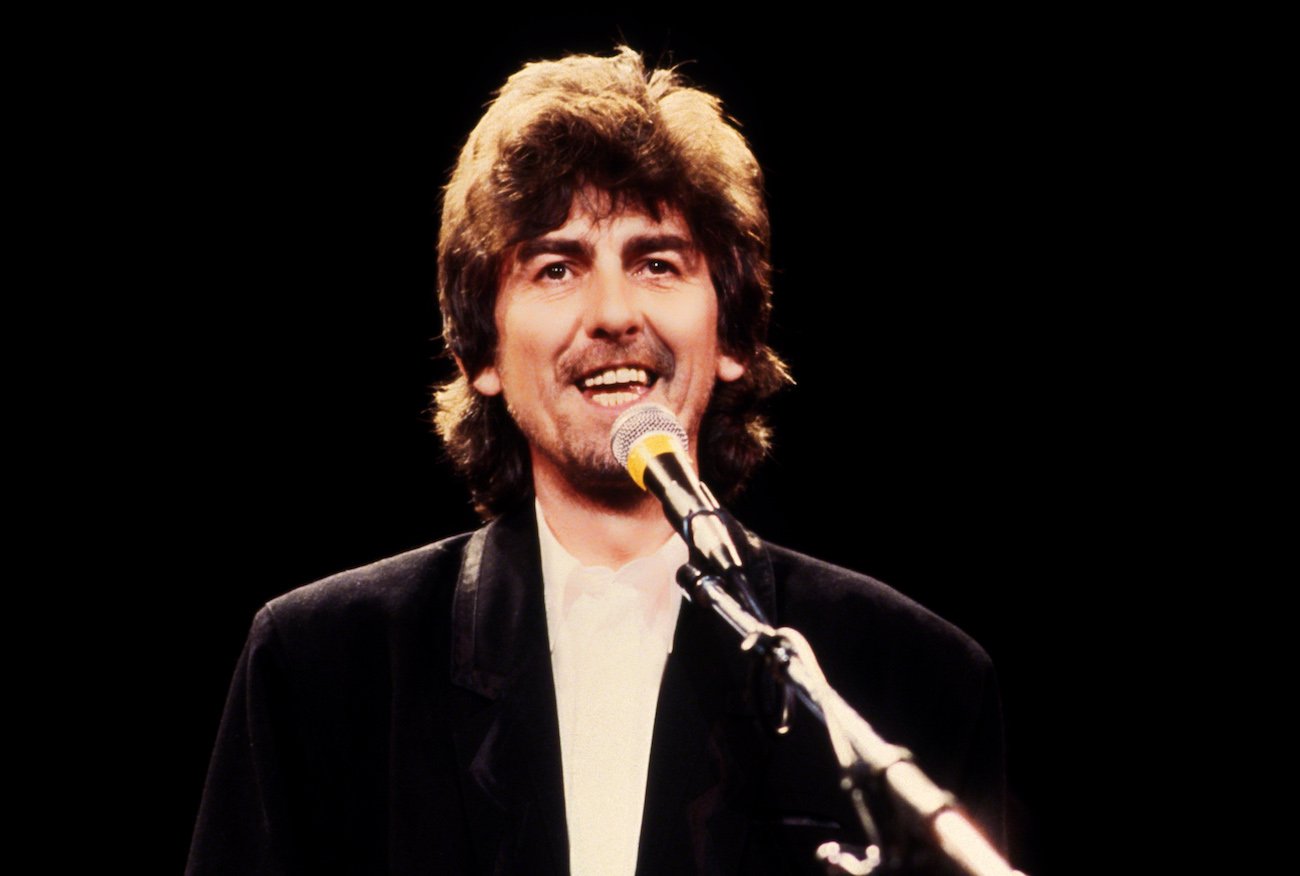
George Harrison Said He Was Always Really ‘Paranoid’ About Whether People Liked Him
Despite his success and apparent confidence, George Harrison was very insecure about many things in his life and was “paranoid” about whether people liked him.

George Harrison was paranoid that people wouldn’t like ‘All Things Must Pass’
The spiritual Beatle was a walking contradiction. One minute he said The Beatles achieved a lot and positively impacted society. In the next, he claimed they weren’t that great.
George also said being a Beatle was hard because Paul McCartney and John Lennon pushed him and his songs aside. However, he also said he was fine with his position in the band because he didn’t like being upfront.
Still, none of that helped George when he wanted to get songs on Beatles’ records. He wasn’t competitive. Plus, constantly being underestimated by Paul and John damaged George’s self-esteem, which was a huge contradiction. Paul said George was cocky and self-assured when they were kids. That confidence didn’t extinguish into adulthood no matter how bad his insecurities were.
In George Harrison: Behind the Locked Door by Graeme Thomson, George’s first wife, Pattie Boyd, said, “He was very secure within himself, and you only really get that security from a very tight and loving family as a child.”
Still, George’s insecurities lurked deep down and seemed to crop up when he was on the brink of something great. He doubted one of his most famous songs, “Something,” would sell.
In Here Comes The Sun: The Spiritual And Musical Journey Of George Harrison, Joshua M. Greene wrote that Boyd was “accustomed to his insecurities. As long as she had known him, he had been an enigma, sometimes exuding self-confidence, sometimes doubting whether he could do anything right.
“When they met, he had invoked in her, as he had in thousands of young women and men, the excitement of superstardom. It seemed unthinkable back then that beneath the glory there lived someone with such doubts about himself. The psychology of the human being was so much more complex than his image.”
In 1977 George told Crawdaddy (per George Harrison on George Harrison: Interviews and Encounters) that being pushed aside in The Beatles left him paranoid that the tracks on his solo album All Things Must Pass weren’t good.
“I was really a bit paranoid, musically,” he said. “Having this whole thing with the Beatles had left me really paranoid. I remember having those people in the studio and thinking, ‘God these songs are so fruity! I can’t think of which song to do.’
“Slowly I realized, ‘We can do this one’ and I’d play it to them and they’d say, ‘Wow, yeah! Great song!’ And I’d say: ‘Really? Do you really like it?'”
George was ‘paranoid’ about whether people liked him
In 1974, George’s self-esteem plummeted during his solo tour of the U.S. Since he felt playing his old Beatles tunes would be hypocritical, George’s audiences turned on him. His spirituality helped him, though.
“He remembered a quote from Mahatma Gandhi: we should create and preserve the image of our choice. The image of my choice is not Beatle George, he thought. My life belongs to God. That’s how I feel.”
George wasn’t too good at keeping the image he wanted. He slipped up several times and let his insecurities out. One of George’s most shocking slip-ups happened during his last performance at a 1992 benefit concert for the Natural Law Party, a political group formed by the Maharishi Mahesh Yogi’s followers.
“Thank you very much,” he told the audience (per Greene). “It really overwhelms me, you know. I’m always really paranoid about whether people like me, I don’t know.” Greene wrote, “Even in 1992, after a quarter century of meditation and yoga, he was haunted by insecurity.
“You always seem very self-deprecating about your songwriting,” said one reporter. George replied, “Self-deprecating. The story of my life.”
George’s insecurities cropped up again when he received Billboard’s first Century Award for musical achievement. During his speech, he said, “I don’t know why I got it, somebody like me. Bob Dylan should get one, too.”
Friend and drummer Andy Newmark told Greene that George also became paranoid during shows. George was paranoid about everything that went into a show. That’s one of the reasons why he preferred not to perform.
“He was a worrier,” Newmark said. “He would turn to musicians he invited to play with him and want to know, ‘Do you like this? Are you having fun?’ If something was wrong, he would wonder, ‘What have I done wrong?’ In day-to-day stuff, he could be quite jittery.”
He thought people hated him for being spiritual
George was even insecure about one of the most solid things in his life, his spirituality. On the one hand, George was willing to alienate his audiences by chanting to Krishna during his Dark Horse tour in 1974. He kept his spiritual image. On the other hand, George didn’t want people to hate him for being spiritual.
In the early 1970s, George hadn’t just alienated his audiences. He’d distanced himself from friends who weren’t as spiritual and who only wanted to “boogy.” George even distanced himself from Boyd.
George told his guru, Prabhupada, “You know, when you commit yourself to something, in a way it’s like putting your head on the chopping block. I find that the more commitment I make, even though, relatively speaking, it’s such a little commitment, I find that now I’m getting people angry.”
George was paranoid and insecure about many things, including his music, voice, and spirituality. However, it didn’t truly outshine his confidence. He still put himself out there and combated his insecurities by not caring about what people thought. That was one of George’s most significant contradictions. He was insecure yet exuded confidence. However, if he’d truly been insecure, he would’ve retreated into obscurity as soon as The Beatles split.


